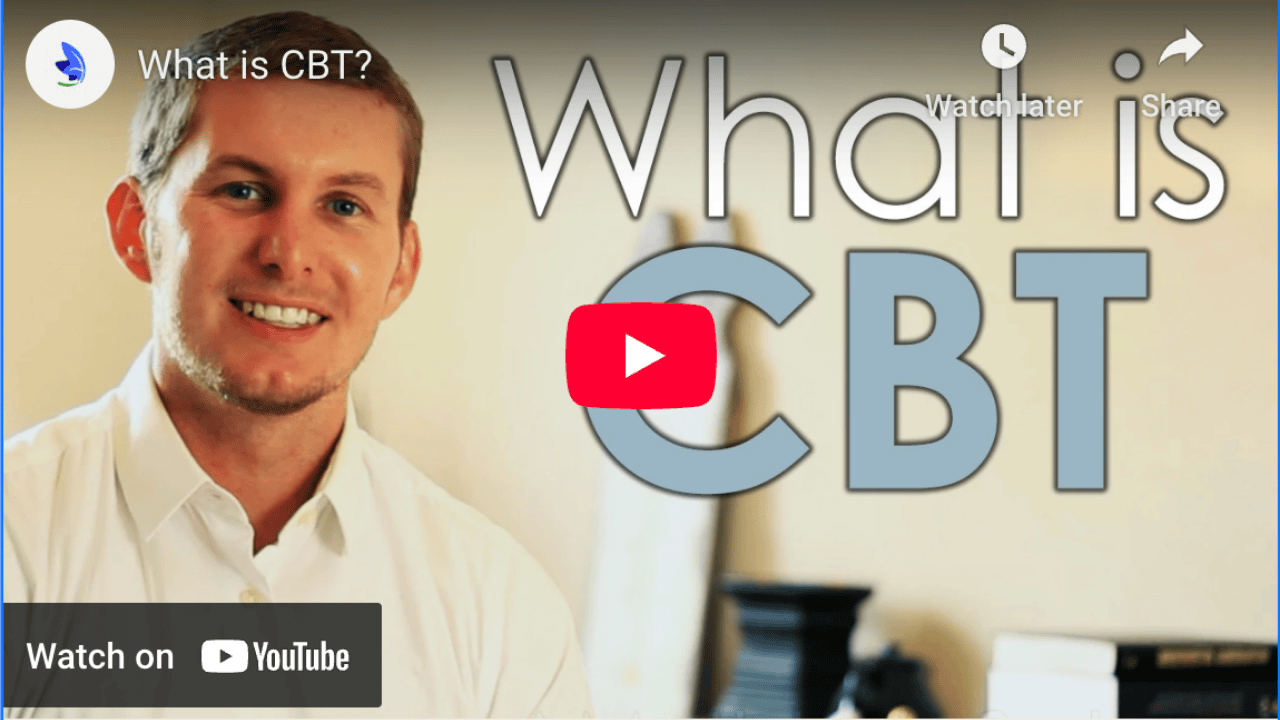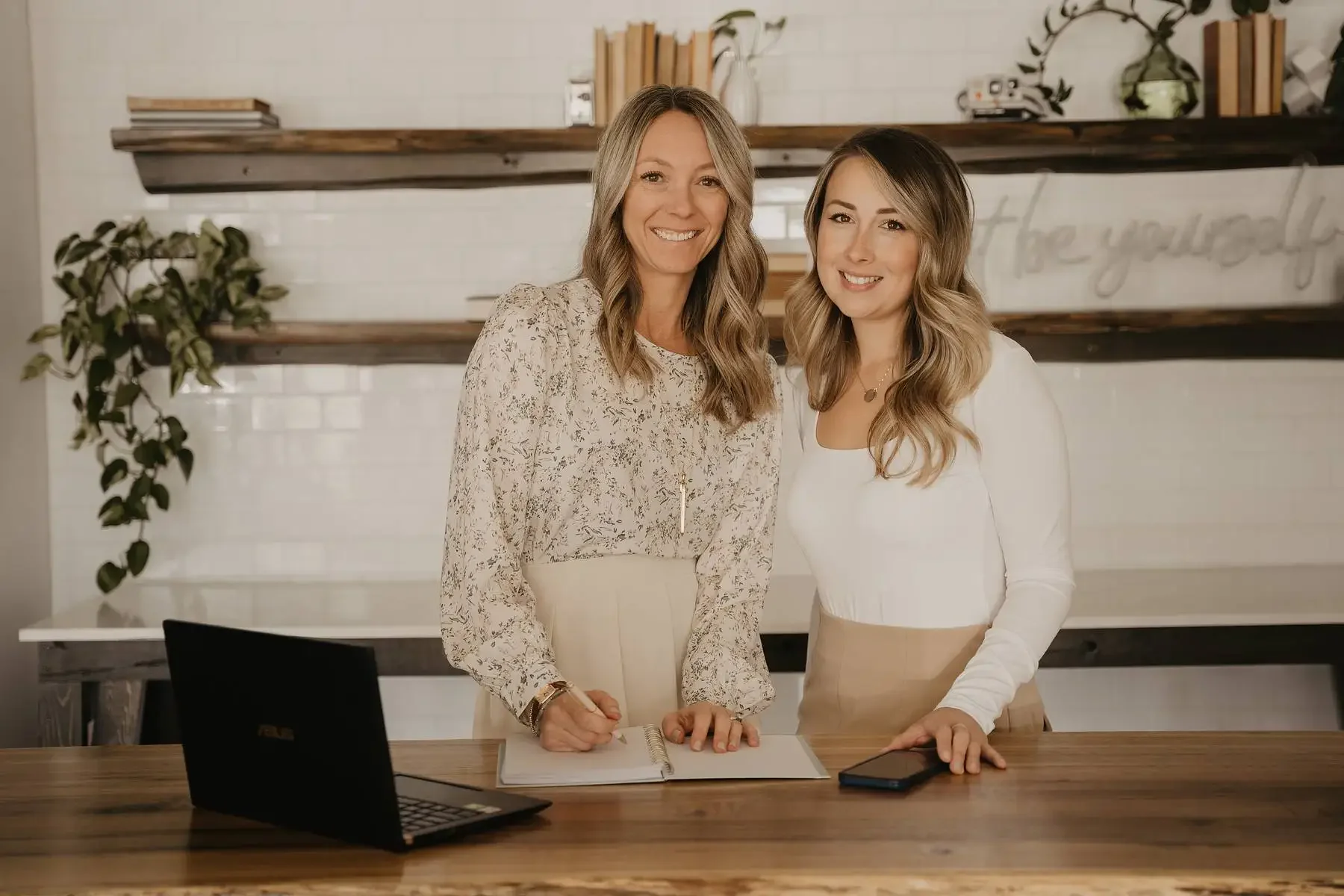
Virtual CBT Psychotherapy. Online Therapy in Ontario
We help you regain control and feel safe by overcoming PTSD, OCD, and anxiety. Our team of experts can help you live securely in the present, free from constant fear and worry.
Our Team of Private CBT Therapists Are Here to Help
Living with anxiety, OCD or trauma can feel overwhelming. It can affect every part of life. These struggles are real and can often leave people feeling isolated and uncertain about whether healing is possible.
Anxiety might make daily tasks feel impossible. While trauma can bring flashbacks, fear, and restlessness that seems unshakable. At our practice, our certified therapists offer online therapy in Ontario.
Virtual psychotherapy can offer support and practical tools to help you feel better. There is a way forward—one step at a time, and you don’t have to face it alone. Our qualified therapists have a variety of specialties.
Why Choose Virtual CBT Psychotherapy for Online Counselling?
We are a team of experienced therapists who use effective therapies like Cognitive Behavioural Therapy (CBT). CBT can help you stop living in the past or worrying about the future. Many of our clients start to feel better in as little as 6 therapy sessions.
Why wait any longer? Get started with online counselling today!
Book a free consultation, and we will match you with a virtual therapist in Ontario. At Virtual CBT, we have a variety of private specialists who understand your symptoms. Psychology Today verifies our therapists, who are all registered in Ontario.
Meet our Qualified Virtual CBT Therapists in Ontario
We have over 25 specialists to choose from! We understand how challenging it can be to find the right therapist. We will help match you with someone during your free consultation.
Are the therapists at Virtual CBT qualified health professionals?
Yes, various regulated healthcare professions in Ontario register our therapists. They can legally use the term "psychotherapist". Our team consists of social workers, registered psychotherapists, clinical psychologists, and registered nurses.
Our team of mental health professionals are experts with years of training and experience in offering mental health support.
How It Works at Virtual CBT Psychotherapy
-

Book a Free Consultation
Book a free consultation with us on our website by clicking the tab below. If the times don't work for you, send us an email.
You will receive an invite from Jane with an intake form. The intake form will help us better understand you. Most people are nervous to book but we are here to help!
-

Attend Your Free Consultation
Meet with Celissa or Melissa for your free consultation. They will answer your questions and get to know you.
They will then provide you with therapist options based on your mental health symptoms and preferences. Many people book their first therapy session during this meeting.
-

Therapy Begins
You will meet with your therapist online or via telephone. They will ask questions and get to know you during your first counselling session. Together, you will create a personalized therapy plan. Most people feel better in 6-12 online therapy sessions.
Our Online Therapy Services in Ontario, Canada
We offer a variety of therapy options to meet the unique demands of your mental health symptoms.
-
We offer effective treatments for those with a history of trauma (including complex trauma histories). We have 4 therapies to choose from:
Cognitive Processing Therapy (CPT)
Prolonged Exposure (PE)
Eye Movement Desensitization Reprocessing (EMDR)
Cognitive Behavioural Therapy for trauma
Learn more about our trauma therapies and therapists. Our therapists will help you choose the best therapy for your symptoms and goals.
Helpful Blog Posts
Book a free consultation and our Clinical Directors will help you decide which therapy is right for you.
-
We offer two therapies for OCD:
Exposure and Response Prevention Therapy or ERP (ERP). Exposure and Response Prevention (ERP) helps people confront and manage their OCD symptoms.
Inference Based CBT. Inference Based CBT helps you understand where your doubt comes from. Learn more about inference based CBT.
We know how scary it can be to talk about your intrusive thoughts. Everyone has intrusive thoughts from time to time, even us.
Our skilled OCD therapists will provide personalized support and guidance throughout treatment.
Learn more about our online OCD therapy in Ontario.
-
CBT is a highly effective form of therapy for reducing symptoms of anxiety disorders (e.g. social anxiety, health anxiety, OCD, generalized anxiety disorder, panic attacks, and phobias).
CBT provides you with skills that you can use beyond therapy sessions. This means that it will help your well-being over the long term.
Treatment approaches vary for anxiety and it will depend what type of anxiety you have. Some examples of CBT approaches include:
Exposure therapy
Behavioural experiments
Thought records
Stopping safety behaviours. Read more about safety behaviours
Some people may want to learn relaxation strategies, mindfulness or emotional regulation skills.
Learn more about CBT for anxiety and our anxiety therapists.
-
Do you feel intense fear about certain things, like driving, flying, needles, or animals? Phobias can make everyday life harder. You might avoid certain places or situations just to feel safe. This fear can feel overwhelming, even when you know the danger isn’t real.
It’s normal to have fears, but if your fear is getting in the way of your daily life, it could be a phobia.
Learn more about driving anxiety therapy, CBT for emetophobia, claustrophobia,fear of flying, bird phobia, blood and needle phobia.
Cognitive Behavioural Therapy (CBT) or exposure terapy can help. In online sessions, we’ll work together to understand and slowly face your fear in a safe and supportive way.
You’ll learn practical tools to calm your body and change your thoughts, so the fear has less power over you.
You don’t have to keep avoiding things that matter to you. With CBT, many people start to feel braver and more in control.
Learn more about our phobia therapists in Ontario.
-
CBT is a highly effective therapy for managing symptoms of depression. It helps you understand and change the patterns of thinking and behaviour. By changing thoughts and behaviours, it will help with feelings of sadness, hopelessness, and low self-worth.
Learn more about how olnine CBT for depression.
-
Cognitive Behavioural Therapy (CBT) offers a structured and effective approach to managing symptoms of Attention-Deficit Hyperactivity Disorder (ADHD).
By targeting thought patterns and behaviours, CBT helps you develop practical strategies to improve focus, organization, and impulse control.
Learn more about CBT for ADHD.
-
At Virtual CBT, we offer supportive and effective therapy for teens. Our licensed therapists understand the unique challenges teenagers face. Whether it's stress from school or peer pressure. We offer a safe and confidential space where teens gain tools to deal with their mental health.
Our online platform makes it easy for teens to access therapy from anywhere, whether at home or on the go. We match teens with experienced therapists who know how to help.
Learn more about our online teen therapists.
Blog Posts on Teens
Cognitive-Behavioural Therapy (CBT) for Teens
9 Tips for Teens and Youth Engaging in Self-Injury
Navigating Youth: Communication Challenges and Solutions
-
Dialectical Behaviour Therapy (DBT) is a specialized form of cognitive-behavioural therapy.
Developers created it to help people regulate emotions, manage distress, and improve relationships.
The model combines mindfulness, distress tolerance, emotion regulation, and interpersonal effectiveness skills.
Learn more about DBT-informed counselling and how it can help you live a calmer and more meaningful life.
-
We offer comprehensive psychological assessments that fit your specific needs. Our licensed psychologists give detailed evaluations right from the comfort of your home. These assessments help you understand your thoughts, feelings, and behaviours. They also provide helpful insights and guide you toward treatment options that can help.
Learn more about our online psychological assessments.
What makes Virtual CBT Psychotherapy Different?
-

Personalized Solutions
Our approach focuses on solutions that work. We create personalized treatment plans to give you the skills to handle mental health challenges and improve your well-being. We will match you with a therapist based on your unique needs and goals.
-

Efficient
Recognizing the demands of life, our treatment is usually short-term. Most people need about 8-12 weekly counselling sessions (on average). This means that you won't have to be in therapy forever and you can start to feel better.
-

Accessible
Our services are accessible to anyone in Ontario (over the age of 12). This means that people in remote areas can access a specialist. Sessions are convenient because you can attend them from the comfort of your home. You can save time and money because you won't need to drive anywhere.
-

Flexible
We understand the importance of flexibility in scheduling therapy sessions. We have a variety of specialists to choose from who can offer different appointment times. If you work full-time and need an evening appointment, we can accommodate this for you.

What is Online CBT Therapy?
CBT stands for Cognitive Behaviour Therapy.
CBT focuses on changing negative thoughts and behaviours so that you can feel better.
Online CBT is an evidence-based treatment. This means that over 2000 research studies have shown that it can help people overcome their mental health problems. Learn more about research articles for CBT (Beck Institute).
Our team of qualified mental health experts will meet with you to create a personalized treatment plan.
Book your free consultation today and discover how virtual counselling can help you feel better.
Discover 5 benefits of virtual psychotherapy.
What is CBT? Source: Therapist Aid
CBT Therapy Treatment Components
Cognitive Behavioural Therapy (CBT) is like a roadmap that helps guide us through tough situations. The goal is to change our thoughts and behaviours so that we can feel better and more in control of our lives. Here's how we break it down:
Identifying Negative Thoughts. Sometimes, we all get stuck in patterns of thinking that aren't helpful. These thoughts can make us feel anxious, sad, or overwhelmed. The first step in CBT is learning to spot those negative thoughts.
Challenging Unhelpful Beliefs. Once we've found the unhelpful thoughts, we ask ourselves, “Is this really true?” In CBT, we dive into your beliefs to uncover what’s true and what might be holding you back.
Changing Reactions. After identifying and challenging the thoughts, we focus on changing how we react to them. CBT will help break the negative cycle by practicing responses that feel more balanced and productive.
Learning New Skills. CBT isn't just about thinking differently—it's also about doing things differently. We’ll work on building new skills, like problem-solving, relaxation techniques, or better ways to handle stress. These tools help you feel more confident and prepared.
Homework and Practice. We can’t change overnight, so practicing these skills in real life is a key part of CBT. You'll have simple exercises to do between sessions that help solidify what you're learning.
By working through these components, you’ll begin to notice changes in how you feel and how you handle challenges. It’s about taking small, manageable steps that lead to lasting improvement.
Meet the Co-Founders of Virtual CBT Psychotherapy
Welcome to our online clinic in Ontario! We're Melissa and Celissa, licensed social workers (RSW). We are on a mission to make mental health support accessible and personalized.
In 2020, we set out on a mission to break down barriers and make sure anyone can access quality health care in Ontario. Waiting for good help should never be the only option, and we're here to change that. We do our best to keep waitlists minimal at our clinic.
We'll meet with you for your free 15-minute free consultation. The goal of the consultation is to understand your needs and goals. If you're a good fit, we'll match you with a specialist who will meet with you for an assessment.
We dedicate ourselves to helping you feel better as quickly as possible. Book a free consultation by clicking the button below to start your journey to feeling better.
Contact Virtual CBT Psychotherapy
Hours of Operation
Monday–Thursday, 7 am - 8pm
Friday 7 am - 4 pm
Saturday and Sunday - Closed
Phone
Celissa: (249) 202-2216
Melissa: (343) 800-0224
Our Virtual Therapists Help Ontario Adults and Teens.
Our therapists are across Ontario. We live in Toronto, Barrie, Midland, Ottawa, Elmvale, Wasaga Beach, Collingwood, Mississauga, and more!
But no matter where you live in Ontario, we’re here for you. Because we offer secure, online therapy, you can meet with a therapist from the comfort of your home. Whether you're in a big city or a smaller community, we make it easy to get the support you need anywhere in the province.

Frequently Asked Questions (FAQs) about Online Therapy Ontario
-
Counselling fees vary across Ontario and can depend on a lot of things. When setting hourly rates, therapists consider their level of education, years of experience, and specialties.
Our fees are $180 to see a psychotherapist (Registered Social Worker RSW, Registered Psychotherapist RP, Registered Nurse RN). Fees are $270 to see a clinical psychologist (PhD, or Psy.D. C.Psych).
Learn more about our fees. We base the fees on a 50-minute counselling session (online or by telephone).
-
Yes, research studies show that CBT done online is just as effective as in-person counselling. A study found that internet-delivered CBT effectively treats depression and anxiety. The results were similar to face-to-face counselling (Carlbring et al., 2018).
Carlbring, P., Andersson, G., Cuijpers, P., Riper, H., & Hedman-Lagerlöf, E. (2018). Internet-based vs. face-to-face cognitive behaviour therapy for psychiatric and somatic disorders: an updated systematic review and meta-analysis. Cognitive Behaviour Therapy, 47(1), 1–18.
-
CBT will likely help you to feel better. It will depend on a variety of factors, including:
The severity of your symptoms
Willingness to attend sessions and do homework
Finding a good therapist who understands your unique needs, goals and values
Book a free consultation directly on our website to see if CBT can help with your mental health needs. If you have tried CBT in the past and didn’t see any progress, we encourage you to try it again with a CBT expert.
-
Of course, there are plenty of self-help books that can help you improve your mental health. We recommend the book Mind Over Mood to get you started.
You may want to meet with a therapist to help you personalize your mental health plan.
-
If you are looking for in-person psychotherapy, you can find qualified therapists on Psychology Today or the Canadian Association of Cognitive and Behavioural Therapies (CACBT).
-
In Ontario, OHIP (Ontario Health Insurance Plan) may cover mental health support. Many hospitals or community health centres offer free mental health counselling.
If you don’t have insurance or don’t want to pay for CBT, it’s best to check with your family doctor.
-
The number of CBT sessions you might need varies from person to person. The length of treatment will depend on:
The nature of your symptoms
The severity of your mental health symptoms
Your willingness to come to therapy every week and work on yourself outside of your sessions
Motivation to make changes
CBT is short-term and usually lasts about 8-12 sessions. Some people need fewer sessions and some will need more. Remember, everyone's mental health journey is different.
-
Yes, online counselling in Ontario is secure and meets all privacy regulations. Therapists use encrypted platforms to ensure your sessions are confidential.
If you suspect that a therapist is not following privacy regulations, speak to them about it.
-
Online therapy involves receiving mental health support over the internet. Instead of meeting in person, you interact with your therapist via video or phone calls. Some online counselling options will also involve texts or emails.
Online therapy tends to be more accessible. It is a great option for those who have a busy schedule.












